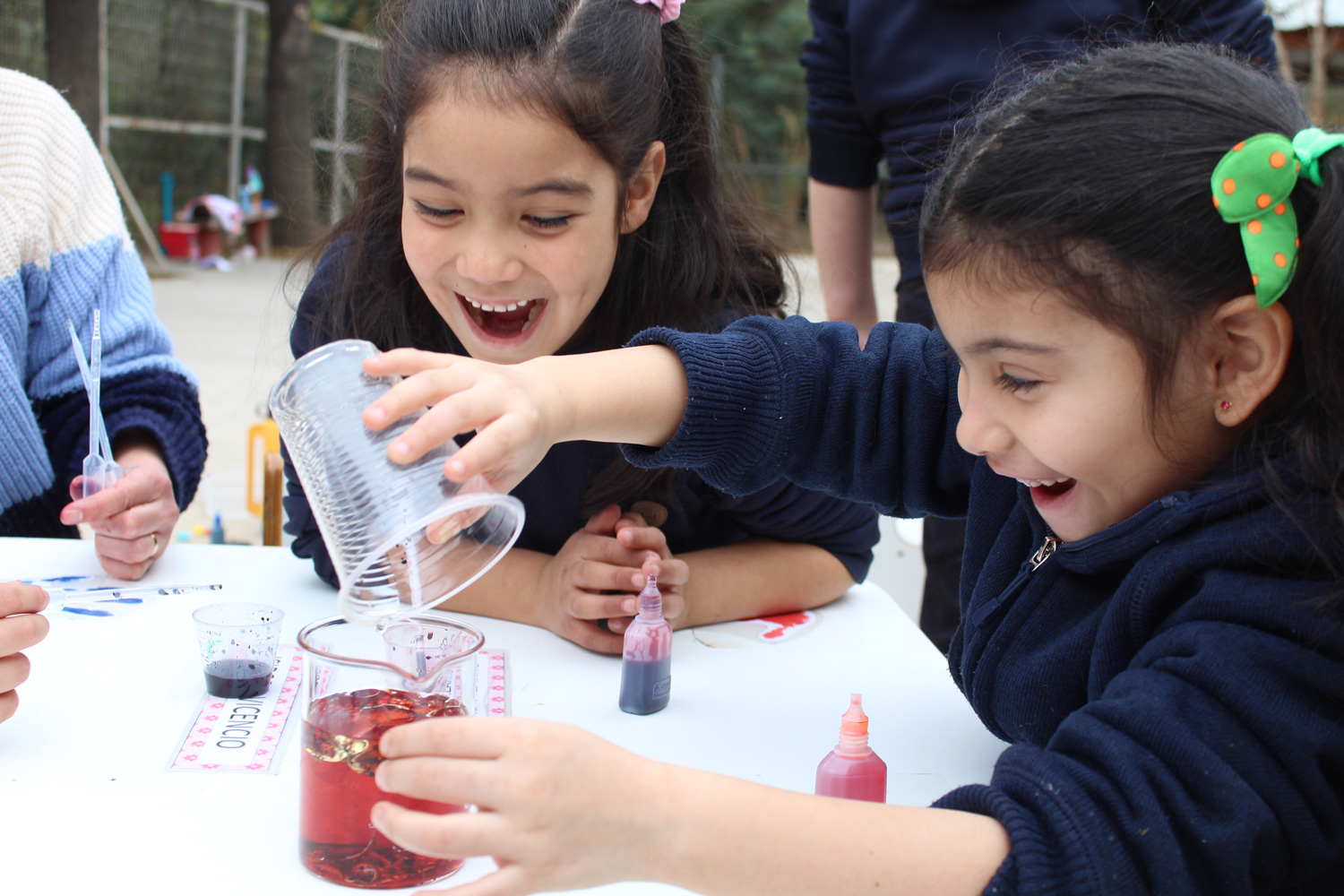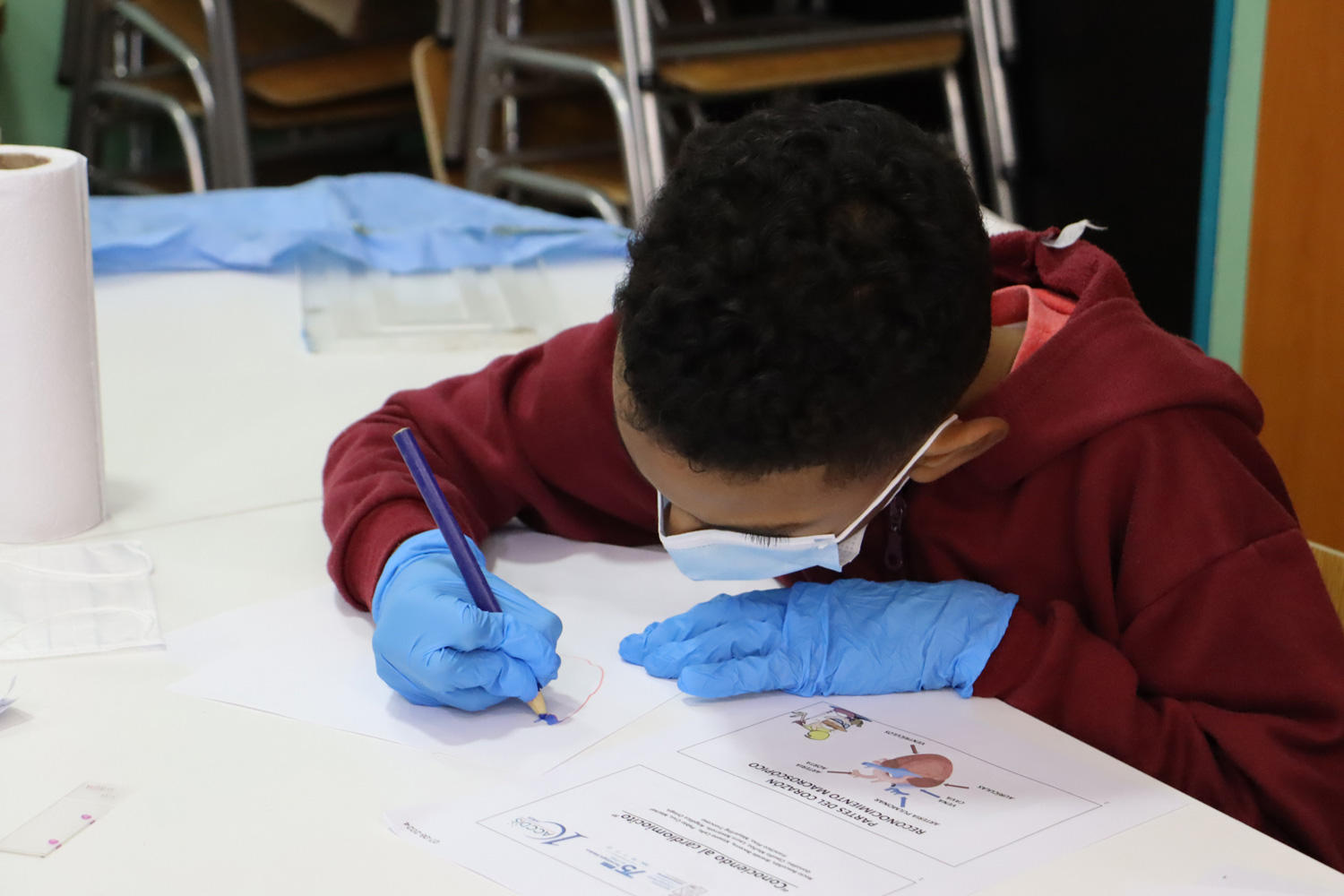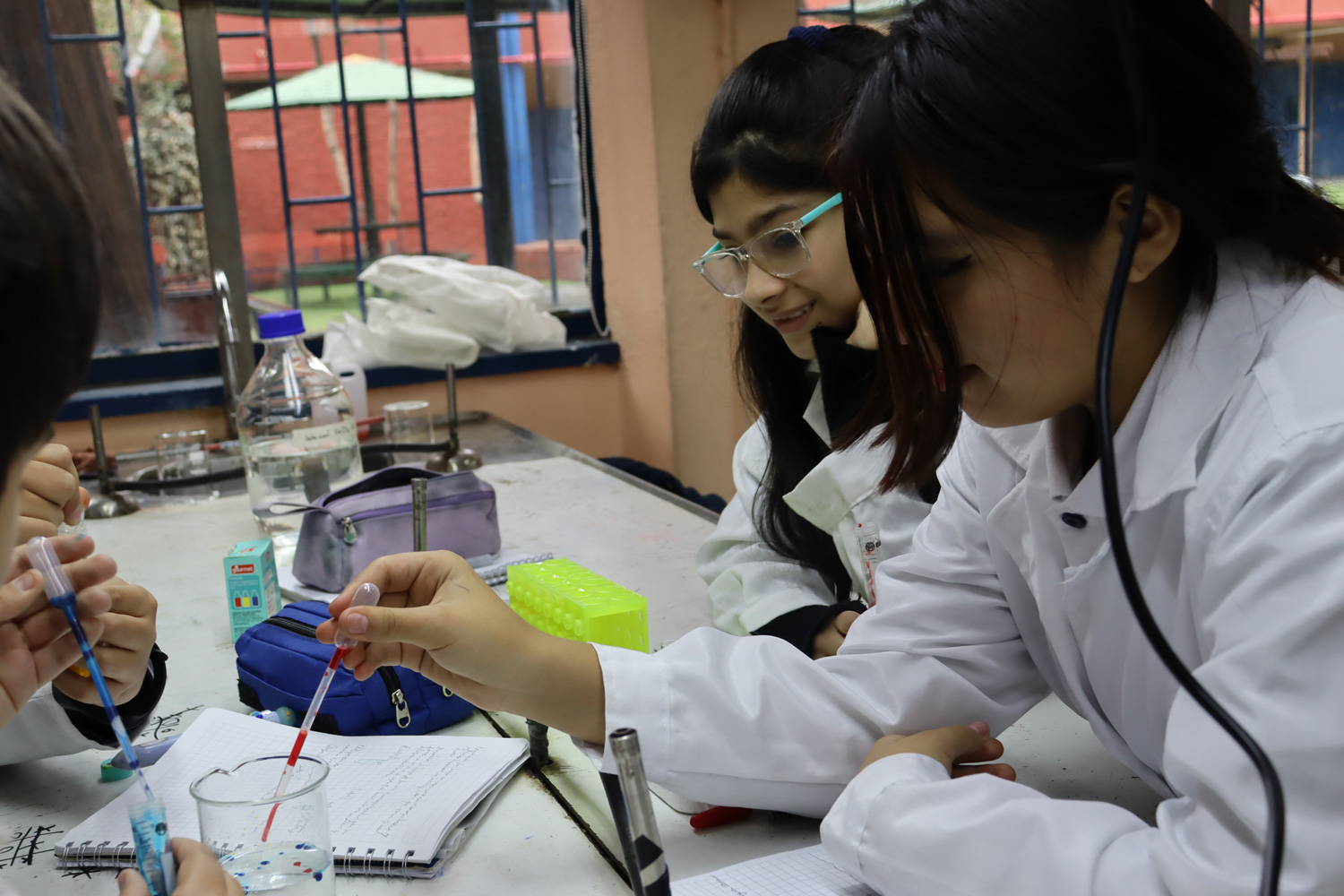Interviews
"These experiences are unforgettable and contribute to the training of the country's future scientists"
- July 17, 2024
- Publicado por: ACCDIS
- Category: News Featured news

This is how the science teacher of the Alexander Graham Bell School No. 402 in Pudahuel described the "Itinerant Laboratories", Estrella Vera. One of the 37 schools and kindergartens that participated in this initiative.
During the month of May, more than 1,100 schoolchildren from the Metropolitan Region, received the visit of the Itinerant Laboratories, organized by the Explora Associative Project, Northern Metropolitan Region of the Ministry of Science, Technology, Knowledge and innovation. The Itinerant Laboratories, are part of the "CuriosasMentes" initiative, an activity of the Explora RM Norte project, that they seek to carry out in person and free of charge, practical experiences related to Science, Technology, Knowledge and innovation (CTCI) to educational establishments and kindergartens.
This year, 43 workshops were held in 17 Itinerant Laboratories, impacting 37 educational establishments and kindergartens in 16 communes in the northern zone. "CuriousMinds", seeks to generate interactive meetings between the scientific community and educational communities. Its purpose is to arouse curiosity, Interest and appreciation of scientific topics in the school community. "Thanks to this linkage, this year we have the participation of more than 10 Universities, Research centres and projects, who brought their experiences to schools, high schools and kindergartens in the northern area of the metropolitan region", Dr.. Mario Chiong, director of the Project and also a researcher at the Advanced Center for Chronic Diseases (ACCDiS ), who lead the Project through the University of Chile and its Faculty of Chemical and Pharmaceutical Sciences.
Among the participating institutions, is the Central University of Chile, Department of Transversal Health Training, Faculty of Medicine and Health Sciences, where the director of the Basic Sciences Unit Nathalie Orellana Apiolaza participated, who commented that this is her first time leading a workshop for the youngest children. "Working with early childhood involves a great effort for those of us who are used to teaching the older ones, but at the same time, Experimenting and participating with children so full of curiosity and desire to learn is incredible. Children are a machine of creativity and interest, and that must be taken advantage of".
In addition, He added that this type of activity allows scientists to, scientists and experts in higher education, develop capacities to face different audiences and enrich their educational work. Professor Rodrigo Naves from the Institute of Biomedical Sciences of the Faculty of Medicine also participated, University of Chile, who together with his team led the itinerant laboratory, "Nanoscience: discovering and experiencing the small world" at the New Zealand School in Independencia, Alexander Fleming School in Las Condes, El Salitre School in Pudahuel and the G-349 Capilla de Caleu Basic School in Tiltil. "It was a great experience, For us it is gratifying to leave our laboratory, where for a long time we are abstracted from the outside world. This type of activity allows children to ask themselves questions and allows us to bring them closer to the world of science."
The topics developed in the traveling laboratories, They ranged from nanoscience, biodiversity, healthy diet, to the exploration of the micro-world. The variety of topics, allowed teachers to apply in advance and choose the ones that best suited their context, offering a varied and enriching educational experience.
On the other hand, The protagonists of this activity also shared their impressions: Juan Ignacio López from the Alexander Fleming School in Las Condes highlighted that "this activity was very exciting because I learned a lot about nanoparticles and microorganisms, hopefully other similar activities can be carried out."
Sabrina Campos, students of the Luis Galdames School of Independence, commented that what she liked most about the workshop given by the ASPROCER Sustainability team, "Training for Superheroes: Healthy diet for minds and a strong planet!" was to learn how they recycled water and then use it on the farm. On the other hand, her colleague Inmari also said that she found the activity very fun "we learned about healthy foods and a balanced diet".
Carlos Tirado from the Alexander Graham Bell School No. 402 in Pudahuel said "I liked knowing that you should not smoke because, otherwise, the lungs turn dark, I also learned that the size of my heart is the size of my fist.". During this activity, the team of researchers from ACCDiS and the UCH Faculty of Medicine, they explained to them what cardiomyocytes are and made observations under the microscope.

Explora RM North Project coming soon, will continue to work with educational establishments and kindergartens, but this time there will be "CuriosasMentes" talks and visits to museums, Observatories and laboratories. If you are interested, You can still apply at www.explora.cl/rmnorte.

Institutions participating in the Itinerant Laboratories: University of Chile(Faculty of Sciences chemical and pharmaceutical, Neuroplasticity and Neurogenetics Laboratory (LNPNG), Faculty of medicine, Institute of Biomedical Sciences (ICBM), School of Medical Technology, Faculty of Veterinary and Livestock Sciences, Young Parasitology Student Organization and the Faculty of Dentistry); Central University of Chile( Faculty of Medicine and Health Sciences, Basic Sciences Unit, Department of Transversal Health Training); Millennium Institute for Research in Optics(LOOK), Universidad San Sebastián(Faculty of Medicine and Science, Department of Biological and Chemical Sciences); Advanced Center for chronic diseases (ACCDiS ); Metropolitan Technological University(Institutional Program for the Promotion of Research, Development and Innovation (MINANOLAB)); Diego Portales University(Institute of Basic Sciences, Contamination and Nanosafety Laboratory); Bernardo O’Higgins University(Faculty of Human Sciences, School of Early Education); Universidad Andrés Bello(Faculty of medicine, School of Chemistry and Pharmacy) MIGRA Millennium Nucleus: Perceptions and consequences of migration; ASPROCER(Association of Pig Producers of Chile) ; University of the Andes(Center for Biomedical Research and Innovation, Laboratory of Cellular and Molecular Immunology).
